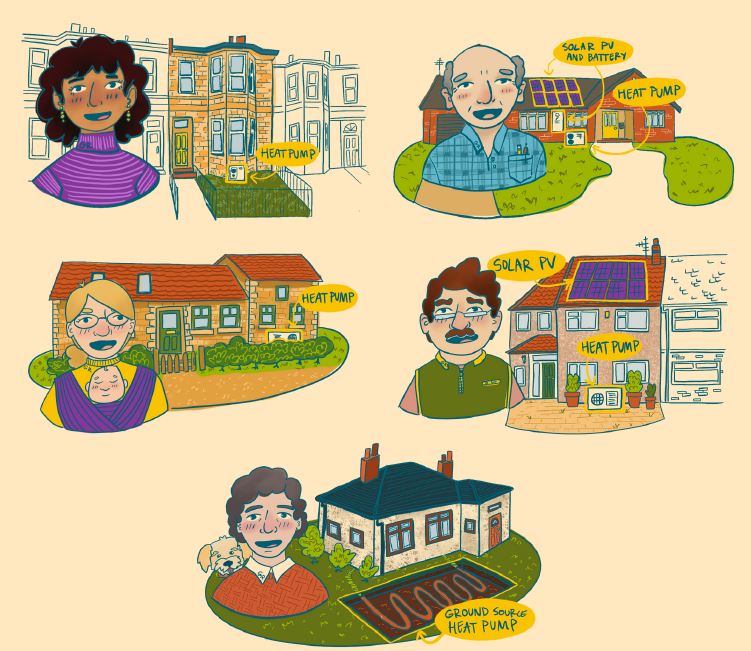The higher upfront cost compared to gas boilers is a challenge for increasing rollout of heat pumps and effective financing options are required to enable this.
This report identifies how innovative business models, such as subscriptions including payment plans, financing and ‘heat as a service’ models, could support the rollout of heat pumps by helping with the upfront investment, which is often a challenge for consumers.
Through a literature review and analysis, and in-depth discussion with stakeholder groups, it explores how three business models could be implemented in Scotland via pilot schemes.
Summary of findings
- A limited number of heat pump finance offerings are currently available to customers in Scotland. Other than an upfront purchase, most of these are finance only payment plans for the purchase of the heat pump only. Uptake for these plans is very low. Funding from the Scottish Government currently includes an up to £7,500 interest-free loan and a grant to the equivalent value. There are heat pump on subscription offerings across Europe, but these are also fairly limited, reflecting an immature market.
- The following range of business models could be applied to heat pumps in Scotland: a) finance only, b) financing lease, c) subscription, d) heat as a service.
- Adding the installation of energy efficiency measures, an energy tariff suitable for heat pumps and energy advice to these propositions could increase their appeal.
- There are non-financial barriers such as complexity of installation, consumer difficulties in understanding fuel bill savings and a current lack of consumer demand.
- Specific barriers to heat pump subscription models include lack of understanding and reassurance around consumer protection and contractual issues – for example, when moving properties.
- Stakeholders have a mixed appetite for piloting new approaches, with the main challenge being provision of finance. Other challenges and risks include ensuring heat pump performance and supply chain capacity.
For further details, please download the report.
If you require the report in an alternative format such as a Word document, please contact info@climatexchange.org.uk or 0131 651 4783.
Buildings account for around a fifth of Scotland’s greenhouse gas emissions. Reducing these emissions is essential for Scotland to get to net zero. The Scottish Government’s Heat in Buildings Strategy (HiBS) sets out how to achieve warmer, greener and more efficient heating across all domestic and non-domestic buildings in Scotland by 2045. Achieving this transformation requires making changes to a large number of properties.
This report investigates the experiences of early adopters of zero direct emissions heating (ZDEH) systems amongst private homeowners in Scotland in order to:
- better understand, for example, their motivations, consumer journeys, barriers and enablers
- develop a series of detailed case studies / pen portraits that depict a range of experiences of successful installation.
The report is based on a review of research on early adopters of ZDEH systems, qualitative interviews with households who had recently installed ZDEH systems and testing of a series of pen portraits resulting from the research.

The findings have been used to inform the Scottish Government’s public engagement strategic framework for the heat transition.
Summary of findings
- The main motivations for installing a heat pump and other energy efficiency measures were linked to environmental interests to decarbonise and to home renovations or broken heating systems.
- Systematic changes to reduce current barriers are necessary to engage the general public in the next phase of heat pump adoption.
For further details on the findings and recommendations, please download the report.
If you require the report in an alternative format such as a Word document, please contact info@climatexchange.org.uk or 0131 651 4783.